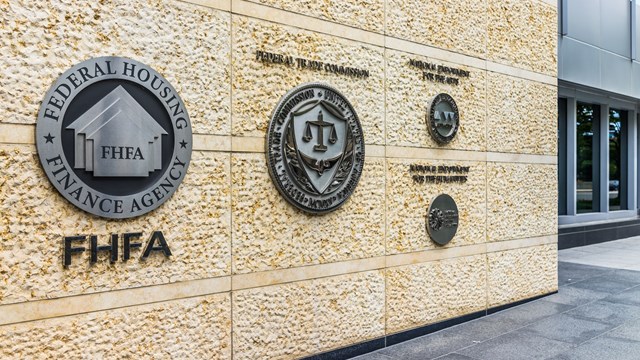
One of the biggest problems that can cause the downfall of any condo or co-op is a lack of funds, or more specifically, not enough money to keep operations running smoothly and to make the necessary repairs to keep everything up to par.
These financial firestorms may happen when a co-op or condo development has a long-running squabble with the building sponsor/developer, is faced with a disproportionate number of sublets and rental tenants, falls victim to a major unexpected, ill-prepared-for repair project, or are the unhappy victims of fraud.
If there’s no money in the reserve fund, a lack of equity to borrow from to make repairs or not enough people able to pay high special assessments, the building will be in serious trouble—falling into bankruptcy or worse.
According to Brad Schneider, CPA, a certified fraud examiner and president of CondoCPA in Elmhurst, there are ways to edge back from the brink of financial wrack and ruin.
Schneider was involved with an association that had no reserves and high delinquencies and the issue was exacerbated because the association had a loose collection policy.
“When realtors in the area met with the board, they were told that unit owners were told if they do not pay their assessments it is no big deal, the board will not do anything,” he says. “The board eventually changed and with the new board and the revitalized manager, fees on contracts were renegotiated with vendors to the point that reserves were now fully funded.”
In addition, the new board met with the legal firm to see why the delinquencies were so high. The legal firm was asked to report monthly on each case and within a year, several units were being rented to pay for delinquent assessments and the delinquencies were greatly reduced. The association now has a well-maintained property with a reserve that is over $800,000.
When comparing associations that have been successful to those that haven’t, Tim Haviland, vice president and commercial loan officer at Illinois-based Itasca Bank & Trust Co., says he looks closely at those that have—to see the financial path that they took.
“One of the most important things is the personality of the association and the makeup of the homeowners,” he says. “They have the responsibility to elect good leaders. A lot of times, those that don’t, don’t understand the rules of living in an association. Once they select good leaders and board members, they need a board that sets a good budget that makes sense—with ongoing upkeep of the building and putting away reserves for repairs they know will be needed. Finally, the homeowners need to pay on time so the cash flow stream remains the life blood of the association.”
How Does it Happen?
Mark R. Rosenbaum, an attorney and principal at the law firm of Fischel & Kahn, Ltd., in Chicago, says even if you have a well-run association and stable reserves, something big can come along out of nowhere and change things in a hurry.
“Take an event like a hurricane, which causes a great deal of damage and causes maintenance issues that can overwhelm it,” he says. “Even with reserve funds, it can find itself facing an enormous job no one was prepared for and cause financial problems.”
Things can get bleak fast and people often wonder why. Schneider says financial disrepair is commonly caused by three different scenarios or a combination of the three.
Scenario one involves owners that have been hit by a difficult financial crisis such as the previous recession. That will cause more unit owners then normal to stop paying their assessments. Lack of payments will deplete the cash reserves and cause financial disrepair.
“Another scenario involves not funding adequately for reserves over multiple years. This will cause an eventual special assessment,” he says. “When owners are assessed a large special assessment, it can cause a significant rise in delinquencies and affect the daily operations of the association when not enough money is being received.”
The third scenario comes from not maintaining the property correctly. When assessments are kept artificially low and the property is not maintained, future special assessments will usually follow eventually.
“The common reasons are the board not doing their fiduciary duty by maintaining the property, so they can keep from increasing the assessments,” Schneider says. “Other reasons are being too lenient on delinquent owners. A system has to be in place so that when an owner does not pay, they know the association will aggressively follow up.”
Another way a building can go into financial ruin is by fraud, which Rosenbaum says is often the result of a lack of control.
“You may have a treasurer, and he or she is the only person who sees the bank statements or signs checks and no one is double checking what is being done,” he says. “The same could be true with a managing agent. No one is supervising the individual property manager and they can get away with things because no one is concerned enough to check. That could lead to disaster.”
Warning Signs
While it might come as a shock to the owners and shareholders who live there, financial catastrophes like these don’t just happen overnight. There are warning signs that exist and people just need to pay attention to what’s happening around them.
“There are a number of warning signs that people should be looking out for,” Schneider says. “A significant increase in delinquencies; assessments that never increase from year to year; reserve assessments that are kept artificially low, reserve studies that show items to replace and they are not being replaced; buildings that are showing disrepair; and large capital projects looming with little or no reserve funds.”
Even the Rich Can Fall
While it doesn’t happen as much in high-income and luxury communities, those buildings or associations are just as susceptible to slide into financial problems if people fail to notice the warning signs.
Still, these owners are usually better financially equipped to work through the problems.
“With high income communities, they normally have more flexibility if it slides into disrepair,” Haviland says. “The higher net-worth homeowner has the ability to absorb a special assessment better or an increase due to a loan. When a lower income gets in trouble, it’s harder to get out of it.”
Schneider feels it is less of an issue with high-income communities, thinking it is more of a pride issue where the owners do not want to be on the list of non-payers in high-income communities, so they will put up the money necessary to get out of trouble.
Rosenbaum says that warning signs are more noticeable in fraud situations in higher-end buildings.
“When money isn’t coming in, you see it pretty quickly. While someone playing the fraud game might be able to do it at a rate of $200 to $300 a month and it might not be missed, when numbers get higher, it’s easier to spot and those numbers catch up more quickly,” he says. “It would really depend on how aggressive the fraudster really is.”
A Team Effort
The worst thing that a building or community can do is see the beginnings of a financial fallout and do nothing, hoping the problem will just go away. Savvy boards, managers and financial advisors need to meet the problem head-on and work together to reverse a bad situation.
“If they change the policies, the situation will improve over time,” Schneider says. “How long does the process take, generally? It will depend on what are the causes and what will need to be changed. If it is assessments, they will either need to amend the budget or wait until the following year. Amending in mid-year can be a lot less palatable for the owners.”
Haviland says that choosing a manager that can guide what seems like a lost cause on the right path is a key element for a successful association, but it really takes a team to turn things around.
“When we start getting to that point, when we are brought in to do a loan, we always ask about the team they have in place. Disrepair is a symptom of the team,” he says. “You need to see who else they are hiring to assist and navigate issues that could come up—legal, banking, accountant, insurance—there needs to be a check and balance system in place. Those are things we see in successful associations. Those in disrepair are those who don’t do those steps.”
A Case Study
Haviland’s bank once worked with an association townhome that had a management company in place, but the delinquencies started going sky high as a result of the recession. Things had gotten so bad that some units were abandoned and there wasn’t even a record of which weren’t occupied.
“We had a loan out with them and one of the covenants of our loan agreement was they needed to maintain professional management, but the management company left,” he says. “There was not a lot of stability on the board and we helped them by putting some management companies in front of the board and they hired one, and they started getting control of their assessments.”
The turnaround took about two years, but it was a happy ending and it is now financially stable.
Worst Case Scenario
If a building or association doesn’t seek help to turn things around and gets to a point where nothing can be done, it could mean the end of the condo or co-op.
“I have seen units go down in value so much that the association ceased to exist and became a rental building,” Schneider says. “It is possible for the association to risk that or even having a court-appointed trustee to oversee the operations of the association.”
Keith Loria is a freelance writer and a frequent contributor to The Chicagoland Cooperator.






Leave a Comment